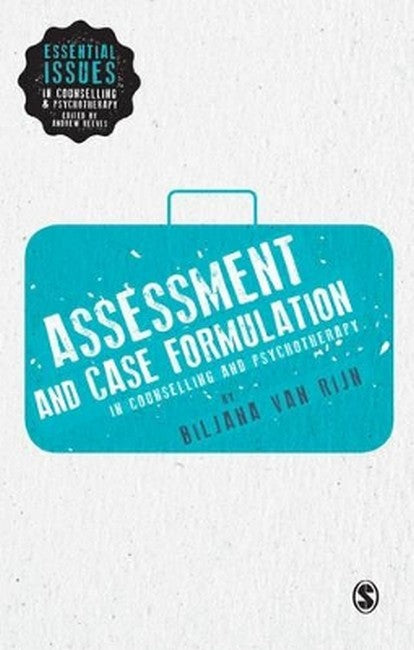Dr Biljana van Rijn is a qualified Transactional Analysis psychotherapist and a Teaching and Supervising Transactional Analyst in the field of psychotherapy. She has worked as psychotherapist and supervisor for a number of years in community organisations and private practice and tutored at Metanoia Institute. Biljana has been a head of clinical services at Metanoia Institute since 1998, and has gained substantial experience in psychotherapy assessment and formulation in this role. She has written on assessment previously and has established assessment training within the Metanoia Counselling and Psychotherapy Service.
Request Academic Copy
Please copy the ISBN for submitting review copy form
Description
Introduction What is assessment? Assessment structure and skills Case formulation Diagnosis Risk assessment Impact of culture and issues of difference Ethical considerations Concluding remarks
This is a thorough and well-structured piece of work, which brings in the recent work of excellent authorities such as Barbara Ingram. It is well arranged, with many examples and case vignettes, which bring the material to life in an engaging way. I enjoyed reading it, and would recommend it unreservedly. -- John Rowan Assessment and Case Formulation in Counseling and Psychotherapy is a must read book for students on courses in counselling, psychotherapy, clinical psychology and psychiatry. It is equally useful for experienced practitioners who might benefit from revisiting and reflecting on the many aspects of clinical practice that are covered in this very practical and comprehensive handbook. Up to date and easy to read, Dr Van Rijn has drawn upon her extensive clinical experience in the field of counseling and psychotherapy, as a practitioner, trainer and supervisor as well as current research to illustrate and convey the various aspects of a good assessment. Based within and drawn out from a relational perspective, this book takes the reader through the many aspects involved in assessment and case formulation, such as diagnosis, risk assessment, ethical considerations and accounting for difference and then, seamlessly through a series of case studies and questions, designed to help the reader reflect upon their work and to deepen their ability to conduct thorough assessments. This is a book I will be recommending to students and colleagues alike. -- Heather Fowlie

